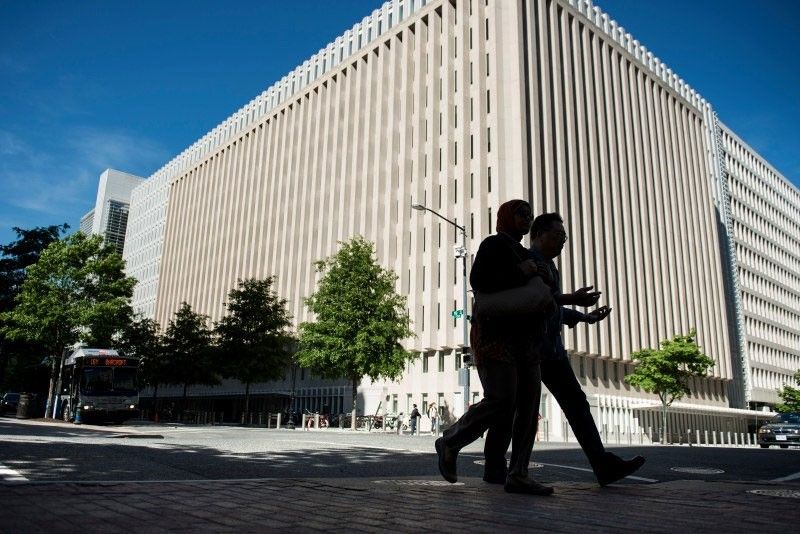UNICEF commends Philippines Government in taking next step to protect children in armed conflict
UNICEF
14 June 2019

UNICEF
14 June 2019
MANILA, 14 June 2019 – UNICEF commends the Philippine government in taking the next critical step toward improving the plight of children in conflict zones with the recent signing of the Implementing Rules and Regulations (IRR) of the law to protect Children in Situations of Armed Conflict (CSAC).

UNICEF supported the government’s Inter Agency Committee (IAC) for the CSAC, led by the Council for the Welfare of Children (CWC) in the nationwide consultation process and drafting of the IRR of Republic Act 11188. UNICEF Chief for Child Protection Grace Agcaoili congratulated the committee saying that “the release of the IRR of this first-ever comprehensive national law on CSAC is further proof of the government’s commitment to the Convention on the Rights of the Child.”
She also reaffirmed UNICEF’s support in implementing the law as it marks the 30th anniversary of the adoption of the Convention on the Rights of the Child. “A very exciting and challenging work awaits the government at this crucial stage of implementation, and to focus on the priorities identified in the IRR,” she added.
CWC Executive Director Mitch Cajayon-Uy said that “We are confident that this law will enable us to strengthen our mechanism to place special emphasis on the rights of these children, toward building a caring and protective society for, by and with the children, with the recognition that they need a peaceful environment to thrive.”
Child rights advocates, under the umbrella alliance Child Rights Network (CRN), expressed optimism with the release of the IRR and called on its partners to “help ensure that the law will be fully implemented at the soonest possible time.” Under the law passed in January 10 this year, the Inter Agency Committee is also tasked to ensure its full implementation, which upholds humanitarian principles and the rights of children to be treated as victims.
Agencies of the government who signified their commitment include the Department of National Defense, Department of Social Welfare and Development, Department of Interior and Local Government, Department of Education, Department of Health, Department of Justice, Office of the Presidential Adviser on the Peace Process, Armed Forces of the Philippines, Philippine National Police, Office of Civil Defense, National Commission on Indigenous Peoples, Philippine Commission on Women, and the National Commission on Muslim Filipinos.
The IRR clearly defines the individuals covered under the law (persons aged 18 and below), provides rules on age verification, outlines the rights of children in situations of armed conflict, identifies the enforcement agencies, and how the law will be carried out.
Salient features of the law include:
- Adoption of an expanded definition of schools and hospitals/health facilities to provide wider protection for these civilian facilities and serve as a stronger deterrent for attacks on these structures, and places of worship
- Expansion of the definition of Zones of Peace, not limited to “demilitarized zones” but covers any community site of sacred, historic, cultural, or environmental importance
- Inclusion of gender-specific provisions on access of girls to education as well as to Menstrual Hygiene Management packs and services
- Upholds the rights of children to be treated as victims; and affords immunity from suit for persons providing assistance.
Globally, children in armed conflict are among the most vulnerable according to UNICEF. The UN Secretary-General reported that in 2017, some 10,000 children were either killed or maimed in conflict and 8,000 were recruited or used as combatants in 20 countries, including some identified hotspots.
UNICEF has identified the Philippines among these hotspots where children continue to be affected by armed conflict. The 5-month long Marawi crisis in 2017 showed how children remain particularly vulnerable when armed conflict breaks out. From January to October 2018,
approximatively 160,000 persons were displaced in Mindanao due to armed conflict and crime and violence – half of them children according to the UNICEF report on the Situation Analysis of Children in the Philippines.
UNICEF is committed to help government in facilitating productive dialogue among parties in conflict situations, building social cohesion and strengthening services for all children, especially in conflict-affected areas in Mindanao. In particular, the completion of the 2017 Action Plan of the UN and Moro Islamic Liberation Front (MILF) showed that some 1,869 children have already disengaged from MILF and receiving support through follow up care from social workers, psychosocial support, help with education and birth registration and other social welfare service.
Media Contacts
Zafrin Chowdhury
Chief of Communication
UNICEF Philippines
Tel: +63 2 249 5495
Tel: +63 917 867 8366
Email: zchowdhury@unicef.org
Chief of Communication
UNICEF Philippines
Tel: +63 2 249 5495
Tel: +63 917 867 8366
Email: zchowdhury@unicef.org
Marge Francia
Communication Officer
UNICEF Philippines
Tel: +63 2 249 5497
Tel: +63 917 858 9447
Email: mfrancia@unicef.org
Communication Officer
UNICEF Philippines
Tel: +63 2 249 5497
Tel: +63 917 858 9447
Email: mfrancia@unicef.org



